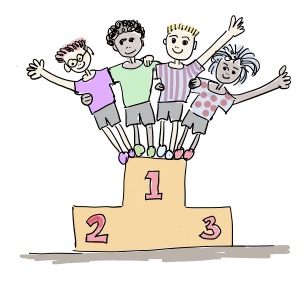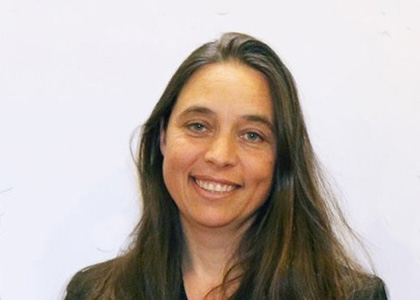Team-culture, the importance of ‘how to get there’
August 2021, Since long I wanted to write a story about the importance of the right mindset in a team and I think, this is the right moment. Besides the fact that I am on holiday and I find it relaxing to write about some stuff that is om my mind. The Olympics are just over in which Sifan Hassan fell in one of the first qualification rounds, stood up, kept going and won a medal for all 3 disciplines she participated in. Also Abdi Nageeye won a silver medal at the Olympic marathon, meanwhile motivating his best friend Bashir Abdi from Belgium to win bronze, which he did. And finally Gianmarco Tamberi and Mutaz Essa Barshim choose to share a gold medal. And although I am normally not a big sports-fan, those events inspired me a lot.
Starting at Wehkamp
I started working at Wehkamp at the beginning of this year. I used to work at Jumbo, a big supermarket chain in the Netherlands and in the food business it is very busy around Christmas. So I didn’t want to switch jobs just before that and work with our team through the Christmas period so that in the quiet period that normally follows after that I could switch to another company. My idea was also that by then we would work in the office again and I could make time to meet my new team and start relaxed with my new job.Well, I was wrong, as you probably noticed already. In January 2021 we weren’t back in the office but in the middle of the second COVID wave and working completely from home, also the physical shops were closed, so this relaxed period I was hoping for turned out to be the opposite and I started working in a super-busy E-commerce company from the exact same chair as I was working already for months, which was a weird experience.
So things were different than I expected, getting to know my new team was (and still is) hard. Somehow meeting people online is still different than in real life, which wasn’t helping me to start. Still, I did my best to talk to as many people as possible and luckily vaccinations went fast in NL and currently we can meet each other at the office once in a while.
Cherry model
In earlier blogs I have written about organisation structures that are scalable and flexible and work well with agile processes (for example this blog about the cherry model). Within Wehkamp we have transformed into a more flexible organisation structure in the last months. This is all nice, but in the end we want to be effective. And a good process and structure alone don’t make that happen.Back to the Olympics, why is the story of Sifan Hassan, the two high-jump gold medalists and the story of Abdi Nageeye inspiring? Because they won gold and silver medals? Well this is a great achievement, but there were more winners. The reason it is the way they won them. How Sifan found the strength to continue after she fell and Abdi wanted to win together with his friend. It is not only about their results.

I believe this is also important when working in a team. It is not only the KPI’s or project planning you want to make, it is also about how to get these results as a team working synergetic together and about recovering fast after you have failed. Why is this important? Well because if you only focus on results, this is mainly short term goals you’ve set for yourself or your team. If you want to work sustainable together for a longer time you also need to spend time on things that matter for the longer term.
Changing a culture
Pointing out that growing a great culture in a team is easy, the trick is to find out how. Making it happen is hard. Also this works different in different teams, at least that is my experience. But there are a few things that I’ve tried out which helped me. I’ve made a list of the most important ones below.
As Stephen R. Covey says in his book “The 7 Habits of Highly Effective People” the only person you can really influence is yourself, so if you want to be effective see how you can pro-actively react to the people around you. To make it practical to work for me, I’ve translated that in that I should always try the best I can to give the right example of what I believe is good for the team-spirit in my team. Please note that I said ‘try’, I am not claiming that I always succeed in that :). One of the things I find really important for a team is that we work together well, don’t blame each other and learn from our mistakes. So to give an example, when a release has failed and systems have been down, we organize a post mortem (sort of evaluation). I try to avoid the discussion about who made the mistake, that’s not relevant the person/team probably knows her/himself. But I like to talk about what the reason for the mistake was, what the root cause was, how, as a team, we could have solved it quicker and how we can avoid it next time.
I believe that a big factor in building a culture in a team is by thinking hard about who should join the team, or which people should work together. So, for a big team, how to divide it in smaller (often scrum) teams. So I always try to think hard about the recruitment process we follow, who is talking to the new candidates, what kind of questions we ask, what answers we expect and how to making sure we have a proper discussion on who we choose as new teammates in our team. New members shouldn’t only be good at their technical skills, we also expect quite some level of soft skills for example. They should be fun to work with!
There are a lot of good books written about how the human mind works, what you can do to improve as a person, how to work well together as a team and a whole lot of other interesting topics. It is very useful as some of this theory is known by a team. So I try to find a way to get this done.
Pizza sessions
This last point: ‘knowledge of theory in a team‘ needs a little more attention. Because it is easier said than done to make sure a team has some common knowledge on how to work together effectively. Since I love to read books I used to recommend books to my teammates to read. After that I just assumed they did that and we could work on that bases. But I forgot, of course, that people tend to learn in a lot of different ways. Some people remember things well when they read (like me), but others rather hear it and need to do exercises to get theory in their head and there are also people who work well with visual memory. For them presentations with schema’s and drawings work well. So when I just suggested people to read certain books, this had little effect because for a lot of my colleagues this wasn’t an effective method.
After a while I figured something out. Most people like to learn new stuff, and when this is in a setting in which you can learn together and talk about the topics, it becomes more effective. So we invented “pizza sessions”, since my team also really likes pizza :) This appeared to be a success, the set-up is simple. People who like to read books, read a book they like. After that they make a summary of it and transform this in some kind of presentation (for most common books there is also a lot of material you can find on the internet for this). During a pizza session we normally start at 17.00 with (how could we not) eating pizza and meanwhile we start talking about what we did with the stuff we learned in our last pizza session. This sometimes already fills half an hour. After that the presentation starts and the presenter shares his story. We also try to do some discussions/exercises during the presentation on the topics of the books. And quickly it is 21.00 and time to go home. Some books need two sessions and we do half a book per evening and we do these sessions every 2 months more or less. In the different teams I have worked in we’ve done around 30 pizza sessions in total and books that I could advice are: ‘The 7 Habits of Highly Effective People’ of Stephen R. Covey, ‘Thinking Fast and Slow’ of Daniel Kahneman, Most books of Patrick Lencioni on team work (like ‘The 5 Dysfunctions of a Team’) or the book ‘Nudge’ from Richard H. Thaler and Cass R. Sunstein. But I am sure there are many more you could try out.

So weirdly enough pizza has always helped the teams I worked in to improve our team-culture. Not the food itself but the nice evenings we had at the office discussing important and sometimes difficult topics, stick in your head. Maybe this is another example that not only results count, also ‘how you get there’.
Anneke Keller
me@anneke.com
